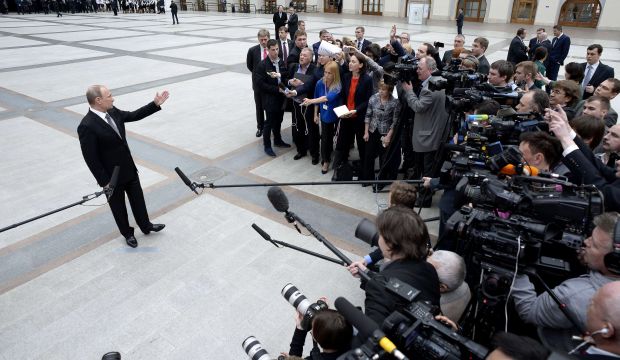As much as it has surprised the international community, Russia’s decision not to veto the UN Security Council resolution on Yemen has sent a glimmer of hope that it will deal with Arab issues more fairly in the future. The real diplomatic triumph for the Gulf in New York was in convincing Moscow not to obstruct the draft resolution. Although it could use the veto to hamper the draft resolution, Russia seems to be in favor of making a more positive comeback to the region and its issues through the gateway of Yemen.
The Russians are finally convinced that betting on the Houthis and the militias loyal to ousted president Ali Abdullah Saleh is not the right course of action in Yemen. Despite their links to Iran, it was the Houthis and Saleh who inflamed the situation in Yemen, in the process impacting security and stability not just in Yemen but across the entire region. The continuation of instability in the region does not serve the best interests of Russia which, having distanced itself from the region over the past few years, remains keen on safeguarding its interests there. The UN resolution plays into Russia’s strategy of halting the war in Yemen and returning everybody to the negotiating table. However, the resumption of talks depends on the Houthis meeting certain conditions, namely withdrawing from the areas they have occupied and returning the weapons they have seized, with the Gulf Cooperation Council’s (GCC) initiative and its executive mechanisms acting as a point of reference in this regard. Given that it is among the countries that have sponsored the GCC initiative, Russia would not accept the Houthi coup against the initiative it backed and participated in implementing as a means to get Yemen out of its 2011 political crisis.
It is obvious that Russia has had enough with the Houthis and Saleh loyalists who failed to comply with the international consensus regarding the situation in Yemen, along with all previous UN resolutions. Although Russia has amended UN resolutions on Yemen out of sympathy to the Houthis, the Shi’ite group’s refusal to respond to peace talks even before Operation Decisive Storm began has prevented Moscow from maintaining its support. Russia realized that Operation Decisive Storm enjoys an international legitimacy and that it would lose its credibility should it vote against the UN resolution. The international community is well aware that Operation Decisive Storm is firmly based on international laws and has never been a miscalculated political adventure.
I think Moscow realizes the great significance of Yemen and the Bab El-Mandeb strait which, if occupied by the Houthis, will direct a fatal blow to global security. If the Houthis seize this strategic waterway, through which approximately 20,000 ships pass every year, they will control international trade and military routes in the Indian Ocean. Commenting on this issue, the head of Russia’s Security Council Nikolai Patrushev said that the desire to shift the current regional balance of power may lead to a long-term war. And Moscow would neither risk nor accept this balance being altered at this time.
Russia’s positive position sends an indirect message, particularly to the Gulf States, of its desire to return to engage with Arab issues after seeing its role recede in the region in a manner not in line with its size or significance. Russia has taken honorable positions throughout history towards our major causes. It is a significant country and the Gulf States do not wish to oppose it or its interests. There is a consensus about Russia’s significance to the Gulf States, and once the two sides realize this, tensions between them will give way to interests.
